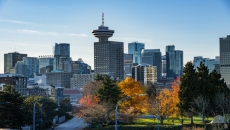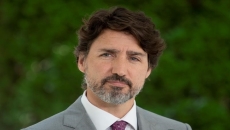The federal government has announced an additional $305 million to help Indigenous Peoples combat COVID-19.
Indigenous Services Minister Marc Miller says the money is meant to help Indigenous communities prepare for emergencies and prevent the spread of the new coronavirus.
He says communities can also use the money for a variety of other measures, including helping elders and vulnerable people, food insecurity, educational and other supports for children and mental health assistance.
The new money will flow through the Indigenous community support fund, bringing the total amount to $685 million this year.
Some funding will also go to First Nations living off-reserve as well as Inuit and Metis people living in urban centres, distributed based on need through an application process.
Miller says Ottawa is committed to ensuring Indigenous leaders have the tools and support they need to implement the various aspects of their pandemic plans.
"This funding will provide crucial support to key community initiatives that strive to prevent, prepare for and respond to COVID-19 in First Nations, Inuit and Metis communities," he said.
"This approach aligns with our commitment to support Indigenous leadership's approaches to community wellness while providing the flexibility to respond to emerging needs, for example in response to an outbreak of COVID-19."
To date there have been 425 confirmed cases of COVID-19 on First Nations reserves, with 34 people hospitalized. Of these, 393 have recovered from the virus. There have also been 17 cases in the Nunavik region in northern Quebec. All have recovered.
The federal government has acknowledged that COVID-19 case counts among Indigenous Peoples do not reflect the true impact on Indigenous communities and individuals, as they only capture statistics from those living on reserves or in Inuit territories. The majority of Indigenous people in Canada live off reserve.






